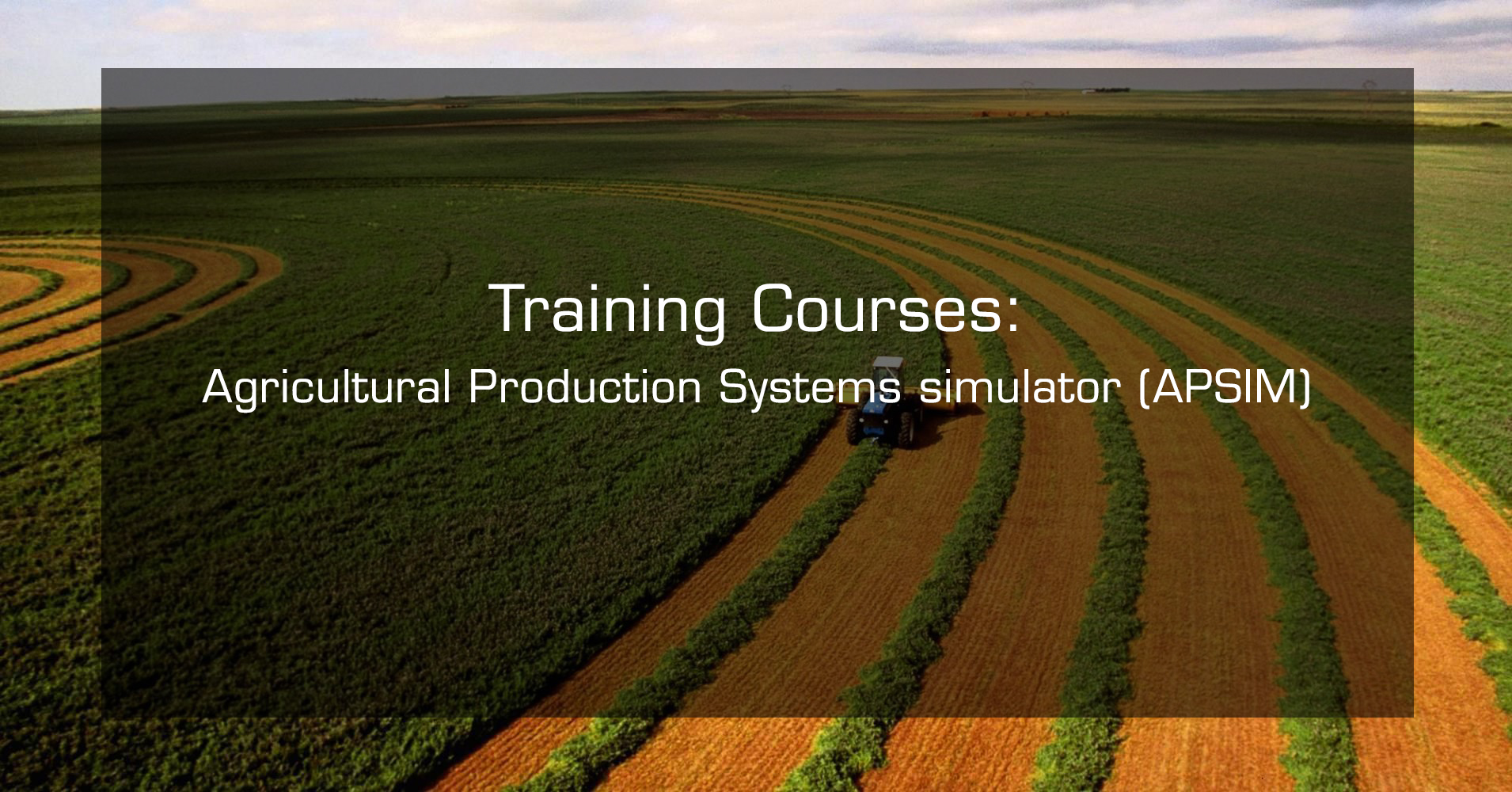
2018, May 1-3 – the training courses will reorganized for scientists by International Potato center at the partner institutions – Scientific-Research center of Aghriculture – May 1-2 and Agricultural University of Georgia – May 3.
1) Agricultural Production Systems simulator (APSIM), proff. Ahmad Manchadi, university BOKU, Austria.
About the course: APSIM Training Course at AgUni Tbilisi
The (Agricultural Production Systems simulator (APSIM) is internationally recognised as one of the most advanced and comprehensive crop/cropping system models for simulating the effects of genetic factors, environmental variables, and management decisions on production (crops, pasture, trees, livestock), profits, and the environmental variables (e.g. soil erosion, nitrate leaching) (http://www.apsim.info/).
APSIM incorporates a generic crop model, which utilises a library of routines for simulating growth and development processes for more than 20 crop species. Environment modules of APSIM handle variables such as climate and weather, soil characteristics (e.g. water balance, nutrients, pH, temperature), crop residue, and erosion. The Management modules allow management rules for a given scenario to be specified, including variables related to crop sowing, harvesting, fallowing, tillage, irrigation, fertiliser use, grazing management, stocking rate, and intercropping. APSIM has been used in a broad range of applications including supporting on-farm decision making, designing farming systems for production or resource-management objectives, guiding crop breeding strategies, assessing risk for government policymaking, and evaluating management options for adaptation to climate change and variability.
This course is aimed at providing training in the use of APSIM. It is very ‘hands on’ with a mix of short presentations and tutorials. The lecture programme includes the following topics:
- APSIM User Interface: How to build, run, and graph a simulation
- Principals of modelling crop growth and development
- Modelling plant available soil water content
- Modelling nitrogen dynamics – Soil nitrogen availability and plant uptake
2) Understanding seed degeneration in potato. Jorje Andrade-Pidra, CIP; Gregory Forbes, independent expert.
About the course: Understanding seed degeneration in potato
This one-day training course will provide the foundations to understand the epidemiology of seed degeneration in potato. We will discuss a review paper (Thomas-Sharma et al., 2015) that describes the concept of seed degeneration and presents the ‘integrated seed health strategy’ that combines host resistance, on-farm management tools and use of healthy seed to manage seed degeneration. Then we will present the ‘risk assessment framework for seed degeneration’ (Thomas-Sharma et al., 2017) and use a software (Shiny interface) to estimate the effect of several epidemiological parameters on yield reduction. At the end of the training session the students will understand seed degeneration in potato and will be able to propose interventions than combine several tactics for managing seed degeneration.
The training course will be given by Jorge Andrade-Piedra (international Potato Center) and Greg Forbes (independent consultant).


